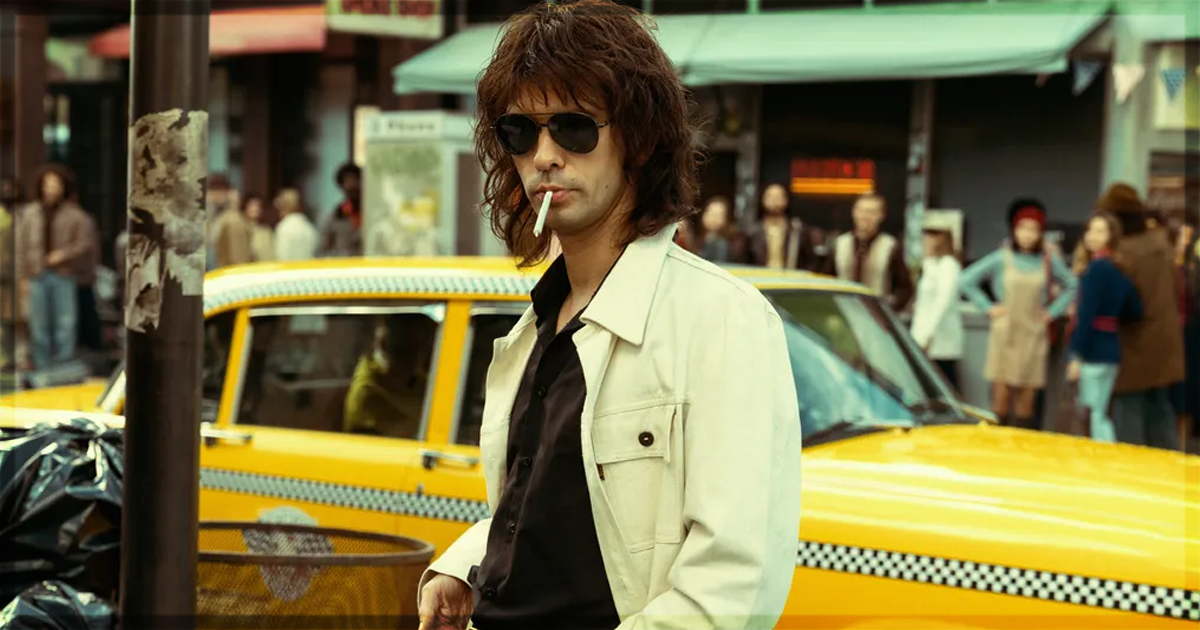Directed by the Russian filmmaker Kirill Serebrennikov, Limonov: The Ballad premiered at the Cannes Film Festival where the film competed for the Palme d’Or in May 2024. Serebrennikov also co-wrote the name with Ben Hopkins and Pawel Pawlikowski. The film is based on Limonov, a 2011 book by Emmanuel Carrére that is a fictionalized biography of the man from whom it borrows its name from: Eduard Limonov, a Russian dissident writer and politician who is best known for having founded the National Bolshevik Party.
Eduard Limonov’s big-screen treatment
As evident from the title of the film, Limonov: The Ballad follows none other than Eduard Limonov (Ben Whishaw) – often affectionately called Eddie in the film – and his life journey through Russia and the United States in the second half of the 20th century. The film begins in Moscow during a press conference when a cold and sarcastic Eddie seems to care very little about people’s opinions of him. From then onwards, the movie goes back in time to the 1970s Soviet Union, where Eddie lives as a struggling poet before he gets himself and his girlfriend Anna (Maria Mashokova) exiled to New York City.
Ben Whishaw is the star of the entire film, stealing every scene he is in – which is virtually all of them – and portraying the complex character of Limonov in all its iterations throughout his life: a poet, a politician, a revolutionary militant, and even, at one point, a butler. Despite some weaknesses in both the script and, mostly, the pacing of the film, Whishaw is incredibly believable in every form and shape he appears on screen as, even when some acting and lines may initially seem exaggerated and over the top.
The film does a really good job of creating the setting from the very beginning of the film. This is particularly important because Limonov: The Ballad often changes in both its geographical setting and period: as Limonov travels between Russia and the United States, the difference between the two countries is immediately clear through the visuals of the film with every aspect of the movie from the cinematography itself to the costumes. The same can be said for the historical change as the years pass, and the film visually follows suit so that it is immediately clear where and when each sequence is set just by looking at the overall aesthetic of it.
Despite Whishaw’s brilliant performance as the lead actor, the Russian accent – which might even be fairly accurate, or at the very least recognizable as Russian – only took me out of the story of Limonov: The Ballad and exposed the film’s level of artificiality. This is often a common misstep in movies about non-English characters but aimed at an English-speaking audience; House of Gucci and Ferrari are just two unfortunate examples, but only with Italian instead of Russian.
By having an English-speaking character force a fake Russian accent to portray a Russian character, the film does nothing except point out its lack of authenticity. It would have been a lot more successful, instead, to either have the Russian characters actually speak in Russian or simply have everyone speak English because why would Limonov speak perfect English with a fabricated Russian accent that only serves to constantly remind the audience of his origins?
After watching the whole – rather lengthy – film, I still felt like I had learned nothing about the actual historical figure. The film offers no clarity over who Limonov was, or what he actually stood for in his political ideas, opting instead to portray a mixture of various snapshots of his life that amount to very little. Limonov: The Ballad also has little to say over the significantly lengthy time period in which the film is set. Despite being set over a good number of years and across two of the most politically relevant countries at the time, the movie ends up portraying a monothematic and black-and-white version of each country and its citizens with no real depth at all.
Unfortunately, there is no actual commentary on the political undertones of the film, which is particularly unsettling for a biopic based on Limonov, a figure whose political life was much discussed during his lifetime. Similarly, Limonov: The Ballad does not seem to have much to say about Limonov’s actions in his personal life – including some problematic scenes that are not necessarily portrayed as negative or condemnable – and contradictory statements that are never really explored. Instead, it looks like every element of his life has been randomly stitched together, creating a confusing picture of Limonov more than anything else.
Overall, Limonov: The Ballad starts with a good premise – promising to shed some light on a much-discussed political character that many may not be familiar with before watching the film – but its lengthy runtime and increasingly slow pacing make it an unimpressive film to watch overall as we learn very little about Limonov or the turbulent times he lived in as a Russian in the United States in the mid-70s. The movie is also especially hard to watch because of some quite violent sequences that, despite being fundamental to establishing Limonov as a character, feel unnecessary in the overall narrative of the film.
Limonov: The Ballad recently screened at the Cannes Film Festival.
Learn more about the movie at the Cannes website for the title. It will release widely on September 19, 2024 with a new title, Limonov: The Ballad of Eddie.
You might also like…
‘Kalki 2898 AD’ Movie Review: Indian Blockbuster Lives Up To The Hype


